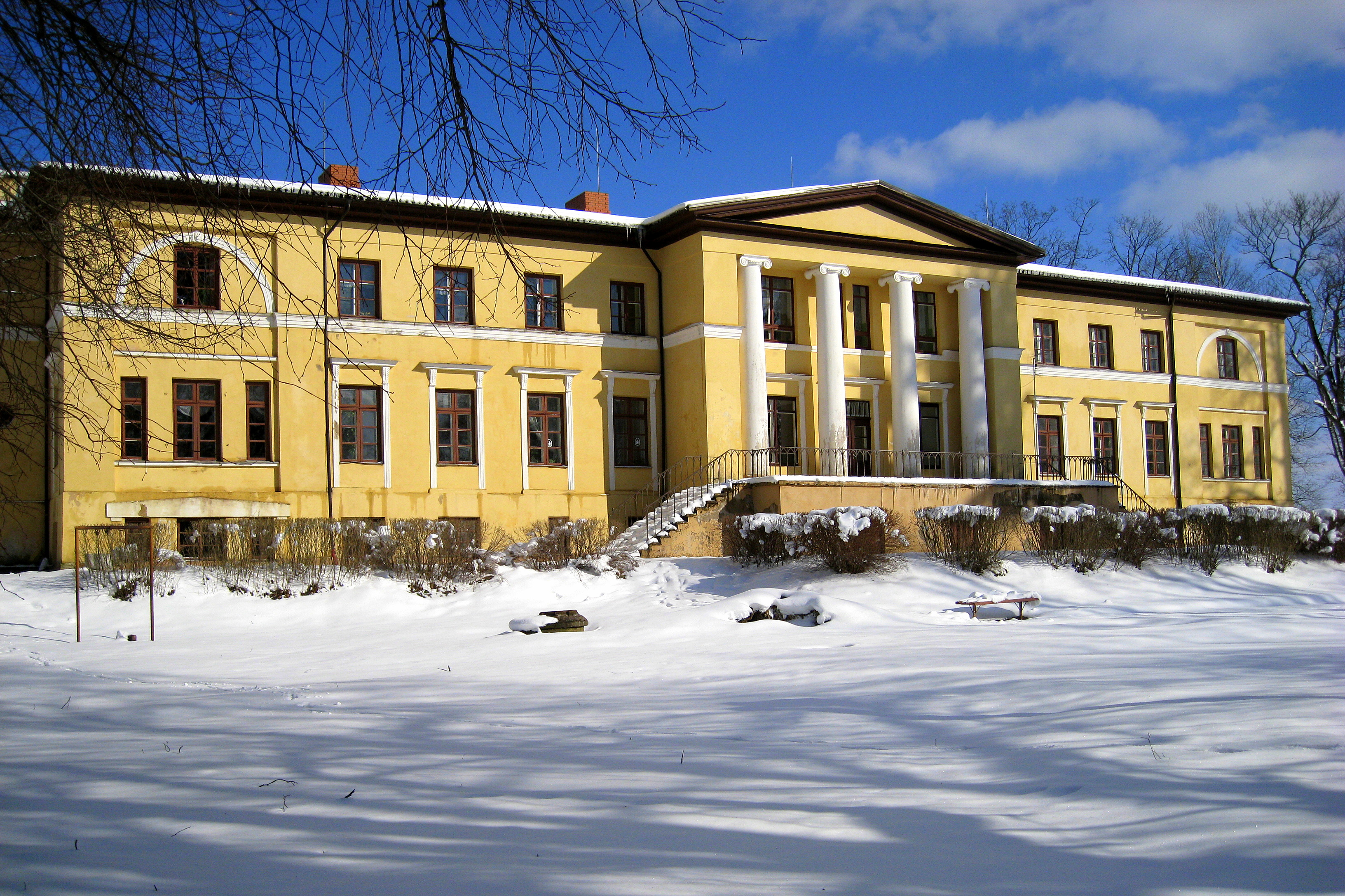Eduard Von Keyserling on:
[Wikipedia]
[Google]
[Amazon]
Johann Heinrich Eduard Nicolaus Graf von Keyserling (May 14, 1855 – September 28, 1918) was a Baltic German fiction writer and dramatist, an exponent of literary impressionism and associated with the historic region of
 Keyserling was born at Schloss Tels-Paddern (now in Kalvene parish,
Keyserling was born at Schloss Tels-Paddern (now in Kalvene parish,
Courland
Courland (; lv, Kurzeme; liv, Kurāmō; German and Scandinavian languages: ''Kurland''; la, Curonia/; russian: Курляндия; Estonian: ''Kuramaa''; lt, Kuršas; pl, Kurlandia) is one of the Historical Latvian Lands in western Latvia. ...
.
Biography
 Keyserling was born at Schloss Tels-Paddern (now in Kalvene parish,
Keyserling was born at Schloss Tels-Paddern (now in Kalvene parish, South Kurzeme Municipality
South Kurzeme Municipality ( lv, Dienvidkurzemes novads) is one of the 35 municipalities established in Latvia in 2021. It surrounds Liepāja, Latvia's third largest city. Its first elected municipal council will take office on 1 July 2021. Its sea ...
, Latvia
Latvia ( or ; lv, Latvija ; ltg, Latveja; liv, Leţmō), officially the Republic of Latvia ( lv, Latvijas Republika, links=no, ltg, Latvejas Republika, links=no, liv, Leţmō Vabāmō, links=no), is a country in the Baltic region of ...
), Courland Governorate
The Courland Governorate, also known as the Province of Courland, Governorate of Kurland (german: Kurländisches Gouvernement; russian: Курля́ндская губерния, translit=Kurljándskaja gubernija; lv, Kurzemes guberņa; lt, K ...
, then part of the Russian Empire.
He belonged to the Baltic German family of Keyserlingk and was a nephew of the geologist Alexander Keyserling. He died in Munich, Bavaria.
Keyserling's early novels ''Fräulein Rosa Herz. Eine Kleinstadtliebe'' (1887) and ''Die dritte Stiege'' (1892) were influenced by Naturalism. The later novels are more finely nuanced and less interested in assembling details. He is always interested in the interplay of light and natural objects. His novels and novellas are usually set in the German Baltic provinces, both in the noble houses and gardens and also in the fir forests and the outdoors generally. Most of his novels are suffused with a certain melancholy. They are peopled by minor aristocrats. Sometimes there are contrasting figures from a less exalted class; often this is a "child of nature," a person uncorrupted by civilization. Frequently there is a clash of generations. His novellas and novels, after 1902, place Keyserling at the forefront of German literary Impressionism. His essays on general and cultural questions, like his theater plays, are forgotten.
Keyserling enjoyed a literary reputation both in Germany and in the United States. His novels, translated into English in the late 1920s, were reviewed by literary critics, particularly in newspapers of record. His works were edited and anthologized for use in language pedagogy, perhaps as much for their accessible style as for their appealing story lines. His language is unusually chaste and concise. Sentences are never very long or complex.
A subtle and elegant stylist, Keyserling's narrative is unforgettable for its evocative ambience and "feel." His most emblematic work is perhaps ''Fürstinnen'' (''Princesses''), only superficially related to the typical German 19th century ''Schlossroman'' (the novel set in a castle or manor house). Somehow midway between Ivan Turgenev and Franz Kafka, there is a certain pessimistic kinship between Keyserling and Anton Chekhov
Anton Pavlovich Chekhov (; 29 January 1860 Old Style date 17 January. – 15 July 1904 Old Style date 2 July.) was a Russian playwright and short-story writer who is considered to be one of the greatest writers of all time. His career ...
.
Works
* ''Fräulein Rosa Herz. Eine Kleinstadtliebe'' (1887) * ''Die dritte Stiege'' (1892) * ''Die schwarze Flasche'' (1902) * ''Beate und Mareile. Eine Schloßgeschichte'' (1903) * ''Schwüle Tage'' (1904) * ''Seine Liebeserfahrung'' (1906) * ''Dumala'' (1908) * ''Bunte Herzen'' (1909) * '' Wellen'' (1911) * ''Abendliche Häuser'' (1914) * ''Im stillen Winkel'' (1914) * ''Nicky'' (1914) * ''Am Südhang'' (1914/16) * ''Fürstinnen'' (1917) * ''Feierstagskinder'' (1918) * ''Gesammelte Erzählungen'', ed. E. Heilborn, 4 Bde., Frankfurt a.M.1971–1973 Works Translated into English * ''Gay Hearts: 1909''. (= ''Bunte Herzen''). Translated by Bayard Quincy Morgan. German Classics of the 19th and 20th Centuries, v. 19. New York: The German Publication Society, 1914. * ''Twilight''. (= ''Abendliche Häuser'', ''Harmonie'', and ''Kersta''.) Translated respectively by James Ashton, Amy Wesselhoeft Von Erdberg, and A. W. Von Erdberg and E. Drew Arundel. New York: Macaulay, 1927. * ''The Curse of the Tarniffs''. (= ''Beate und Mareile''). Translated by Arthur Jacob Ashton. New York: Macaulay, 1928. * ''Tides''. (= ''Wellen'') Translated by Arthur Jacob Ashton. New York: Macaulay, 1929. * ''The Man of God''. (= ''Dumala'') New York: Macaulay, 1930. * "Princesses" (=''Fürstinnen''). Translated by John B. Rutledge. * "Holiday Children" (= ''Feiertagskinder''). Translated by John B. Rutledge. *"Number 2, Margaretenstrasse" (= ''Die Dritte Stiege''). Translated by John B. Rutledge. *"In a Quiet Corner" (= ') Translated by John B. Rutledge. *"Sultry Days" (= ''Schwüle Tage'') Translated by Tony Malone (2018) *''Waves''. (= ''Wellen'') Translated by Gary Miller. Cambridge: Dedalus Ltd., 2019. *"Experiences of Love" (= ''Seine Liebeserfahrung'') Translated by Tony Malone (2019) *"Neighbours" (= ''Nachbarn'') Translated by Tony Malone (2020)Notes
References
Further reading
* Richard A. Koc, ''The German Gesellschaftsroman at the Turn of the Century. A Comparison of the Works of Theodor Fontane and Eduard von Keyserling''; (= EHSchr 1, 542); Bern, 1982 * Richard A. Weber, ''Color and light in the writings of Eduard von Keyserling''; (= Studies in modern German literature 39); New York, 1990 * Jean-Paul Kauffmann, ''A Journey to Nowhere: Detours and Riddles in the Lands and History of Courland''; MacLehose Press, 2012External links
* * {{DEFAULTSORT:Keyserling, Eduard von 1855 births 1918 deaths People from Aizpute Municipality People from Courland Governorate Baltic-German people 19th-century German novelists 20th-century German novelists Counts of Germany Impressionist artists University of Tartu alumni Analysands of Karl Abraham 19th-century Latvian people German male novelists German male dramatists and playwrights 20th-century German dramatists and playwrights